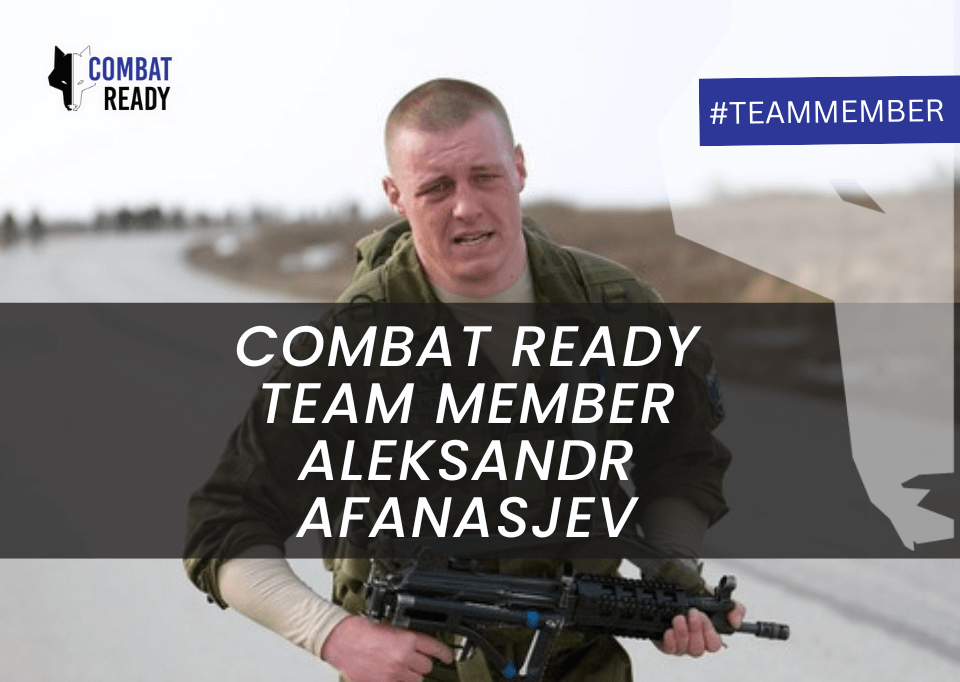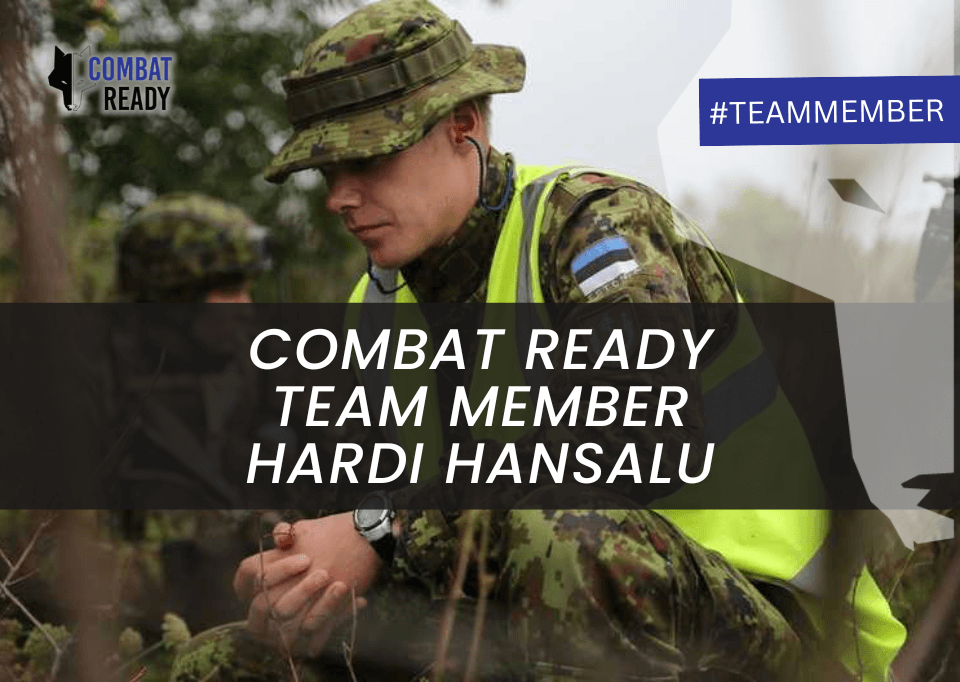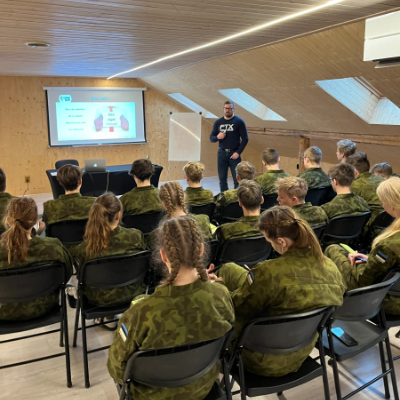
Combat Ready team member Aleksandr Afanasjev
January 17, 2023
Combat Ready team member Hardi Hansalu
January 31, 2023Leadership Forum 010 (Jan 19, 2023):
Relationships, relationships, relationships, or what it means to “Cover and move”
In the language of tactics, “Cover and move” means that one party covers with fire and the other moves to the next position using the cover. Covering each other in this way, they move until the enemy’s position has been captured i.e. the enemy has been destroyed.
In everyday life, however, “Cover and move” means that we look for opportunities where we can support and help our partner, colleague, or whoever, with whatever and however we can.
 We need to understand that we are a team, moving forward towards a common goal. In our personal lives and at work. Who wouldn’t want to be happy, educated and successful in what they do? A large majority of people would. However, it is difficult to achieve goals alone, and this is where a team can help out. If one of our team members is going through a tough time in their personal life, for example, it’s great to have support at work. With the support of the team (someone somewhere to cover for you so you can move forward with your problems, or find a solution) it is much easier to come out a winner. That’s why it’s important to build successful teams everywhere – at work, at home, in your circle of friends, and so on.
We need to understand that we are a team, moving forward towards a common goal. In our personal lives and at work. Who wouldn’t want to be happy, educated and successful in what they do? A large majority of people would. However, it is difficult to achieve goals alone, and this is where a team can help out. If one of our team members is going through a tough time in their personal life, for example, it’s great to have support at work. With the support of the team (someone somewhere to cover for you so you can move forward with your problems, or find a solution) it is much easier to come out a winner. That’s why it’s important to build successful teams everywhere – at work, at home, in your circle of friends, and so on.
How can we achieve this?
All members of the team must jointly understand the importance of the greater goal and put the team’s priorities before their own. Every effort must be made to make team members feel like a united force. If, when we come into the office, home or on duty, we immediately look for an ‘enemy’ among ourselves with whom we somehow do not want to cooperate, whom we try to avoid at all costs, we automatically create a situation where we cause ourselves problems. We ourselves indicate that we are not ready for teamwork.
How can we still work with people who don’t suit us?
In this case, there is no specific guide on how to proceed. However, the starting point should be to look at the overall purpose of the company and the needs of the team.
In a major project, on which the success of the whole company depends, relationships between team members and different departments are particularly important.
If the team does not trust its leader and if there is a poor relationship between the leaders of the different departments, it will be very difficult to explain to the rest of the team why it is important to get along right now. At that point it is already too late. Relationships need to be built up consistently, using all the tools at your disposal to make it pleasant and easy to work together on any project.
Serving in the Estonian Defence Forces, I have met a lot of superiors. Some of them prioritized the team, others looked at the big picture. Some tried to answer all the questions and make decisions themselves, while others admitted they couldn’t and left most things to the team.
Which leadership style is the right one?
Both approaches are right and necessary at one point or another. The best solution, however, is for the whole team to understand the big picture and for all members to work together towards a common goal. At one point or another, you need to be both the decision-maker and the follower.
In this case, the whole team must be able to answer one question – WHY?
Why are we doing this? Why this way? Why is it even needed?
Of course, there are situations (for example, on the battlefield) when we don’t have time to answer all the questions but need to act quickly and decisively. Therefore, it is important to do some groundwork in advance and work with the team to find solutions to as many ‘what if’ questions as possible.
There is a saying that “a soldier wants to decide for themselves how they die on the battlefield” and this is the answer to many questions. You have to listen to your team and to the opinion of all members on the situation that has arisen. As a superior, it is always better to look for the right solution from the members of the team, because in this way they will feel involved and will help to resolve the situation more effectively, while being highly motivated.
A story from Afghanistan comes to mind:

We had been on a mission for three months, and our squad leader was in Estonia the whole time. He was injured even before we went on the mission, during training. He was replaced by a man with the rank of corporal, who knew it would be a big challenge for him. He had not been a squad leader before. It was my second time on such a mission, and I had previously done the job of fire team leader. Many of the other men had also been on a mission before. Relations between the men were equal and we generally got along well. Before each patrol or operation, we would sit in a round table and discuss how we could better execute our tasks.
During those three months a lot of things had happened to us, IED (improvised explosive device) explosions, a lot of exchanges of fire, men had been injured, and so on. However, the team stuck together and there was a lot of trust in each other.
Three months later, after the leave, we were joined by our squad leader, who didn’t like at all the way we were handling things. He wanted to re-assert himself and decide everything. The team perceived this as an attack and took a defensive position. However, nobody wanted to stir up tension in the situation. Fortunately, at one point, the team sergeant, who had seen our performance before, intervened. He indicated to the squad leader that if the men had been doing well for three months without a squad leader, there was no need to make any major changes. The sensible thing would be to let the team get on with their own business and to support them on this journey. After that, planning and everyday life more or less returned to normal. The squad leader really tried to listen more to his team.
This scenario supports the previous discussion. Sometimes it is wise to listen to and follow your team, not to control everything every step of the way. Good relations are the strongest asset of all teams!
The Leadership Forum was conducted by Aleksandr Afanasjev.
The Leadership Forum is a series of Facebook livestreams where participants can also actively participate. In the Leadership Forum, we discuss a wide range of leadership-related topics. If you have a question about leadership, write to us or let us know during the next FB Live.




